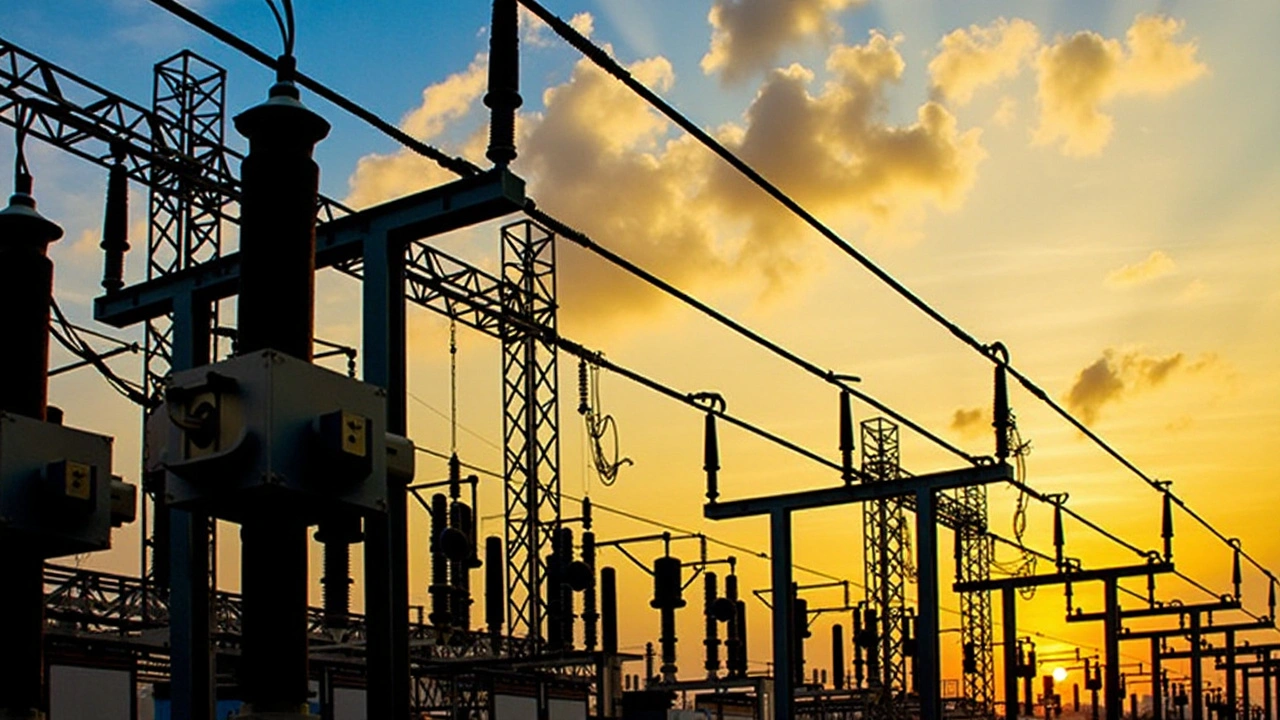Ongoing Challenges with Nigeria’s National Grid
On the evening of October 14, 2024, Nigeria's national grid collapsed once again, leading to an almost immediate impact on a large portion of the country. This incident marks the eighth collapse of the national power grid this year alone, sparking growing concerns over the reliability of Nigeria’s electricity infrastructure. Just before 19:00 local time, electricity supplies were abruptly severed, leaving millions of Nigerians without power. The states primarily affected were in the southeast, including Abia, Anambra, Ebonyi, Enugu, and Imo, where residents were left in darkness during the early hours of the night.
The Enugu Electricity Distribution Company (EEDC) was quick to issue a public statement acknowledging the grid collapse. Facing yet another instance where all its interface Transmission Company of Nigeria (TCN) stations were out of supply, the EEDC found itself unable to provide any power to its wide customer base. Such outages have become distressingly routine for many Nigerians who depend on the grid for their daily activities. The cycle of power instability has left citizens preparing for the eventuality of sudden blackouts, punctuating daily life with uncertainty.
An Urgent Call for Infrastructure Improvements
The repeated failures of the grid have highlighted a pressing need for infrastructural upgrades and more resilient systems. Despite various governmental assurances for improvements, including with reports from entities like the Abuja Disco and the Kano Disco, substantial enhancements remain elusive. Each collapse reverberates through the economy, impacting residential and commercial sectors alike. For businesses relying on constant power, frequent outages mean costly disruptions and potential financial losses. The daily life of individuals is also significantly affected as they lose access to essentials like lighting, refrigeration, and communication capabilities.
In response to this latest incident, the Abuja Electricity Distribution Company swiftly notified its customers, promising that efforts were underway to restore electricity to affected regions as quickly as possible. Similarly, the Kano Disco noted that a system disturbance occurred at 18:48, which impeded their ability to distribute power. These assurances, however, do little to placate the growing frustration among customers who feel trapped by an archaic and unreliable system.
The Power Generation Dip
The grid collapse also resulted in a dramatic drop in power generation, plummeting to 0 megawatts at the time of the incident. Such a figure starkly illustrates the severity of the collapse and its capacity to plunge vast areas into total blackout. Efforts to restart and stabilize the grid involve coordinated synergies between various distribution companies and the regulating body, the TCN. However, each attempt also underscores the delicate balance and vulnerability inherent in the current power infrastructure.
New Strategies Needed for Power Security
The persistent issues with the national grid call for innovative strategies and investments. Experts argue for a multifaceted approach that not only involves technical advancements but also structural and policy reforms. Moving away from centralized systems and exploring decentralization through localized generation and renewable energy sources could fortify power delivery systems. Decentralized grids, powered by renewable resources such as solar or wind, could provide sustainable and stable alternatives in a country abundant with natural energy potential.
Additionally, safeguarding electricity infrastructure from external threats such as vandalism and theft remains crucial. Distributors, including those like the Kano Disco, have consistently asked their customers to remain vigilant to protect power installations from harm. Community engagements and awareness campaigns could create a culture of collective responsibility towards infrastructure security.
Repeated Grid Failures: A Call for Attention
October’s grid collapse, being the eighth of 2024, mirrors similar occurrences across previous years, with relentless power fluctuations challenging Nigeria’s progress. As the power sector continues to grapple with inefficiencies, the government and various stakeholders face immense pressure to prioritize the stabilization of electricity supplies. The multifaceted effects of unreliable power extend beyond inconvenience, impacting health, education, economic development, and national security.
Residents and businesses have grown weary of frequent power disruptions, fostering an atmosphere of frustration. In many communities, reliance on generators as alternative power sources has become the norm, despite associated high costs and environmental concerns. The sound of diesel engines humming through residential areas during outages is a common auditory reminder of the grid’s failures. This transition towards heavy generator use does not come without social and environmental impacts, raising additional concerns about pollution and public health.
Looking Ahead: Will There Be Change?
Upgrading Nigeria’s power sector could significantly bolster the nation’s economy and improve the quality of life for millions. As efforts to address foundational causes of grid failures continue, both the government and private sector stakeholders need to work collaboratively. Initiatives aimed at attracting investment into energy projects—both conventional and innovative—could pave the way for a revolution in the power sector. Transparency in policy implementation and commitment to sustainable development goals are keys to charting a reliable energy future.
While these grid collapse incidents draw attention to urgent issues needing address, they also present opportunities for substantial improvements. With sustained efforts, Nigeria’s potential to reform its power infrastructure remains promising, offering hope for transforming this critical sector into a robust and reliable foundation for the nation's ambitions.

